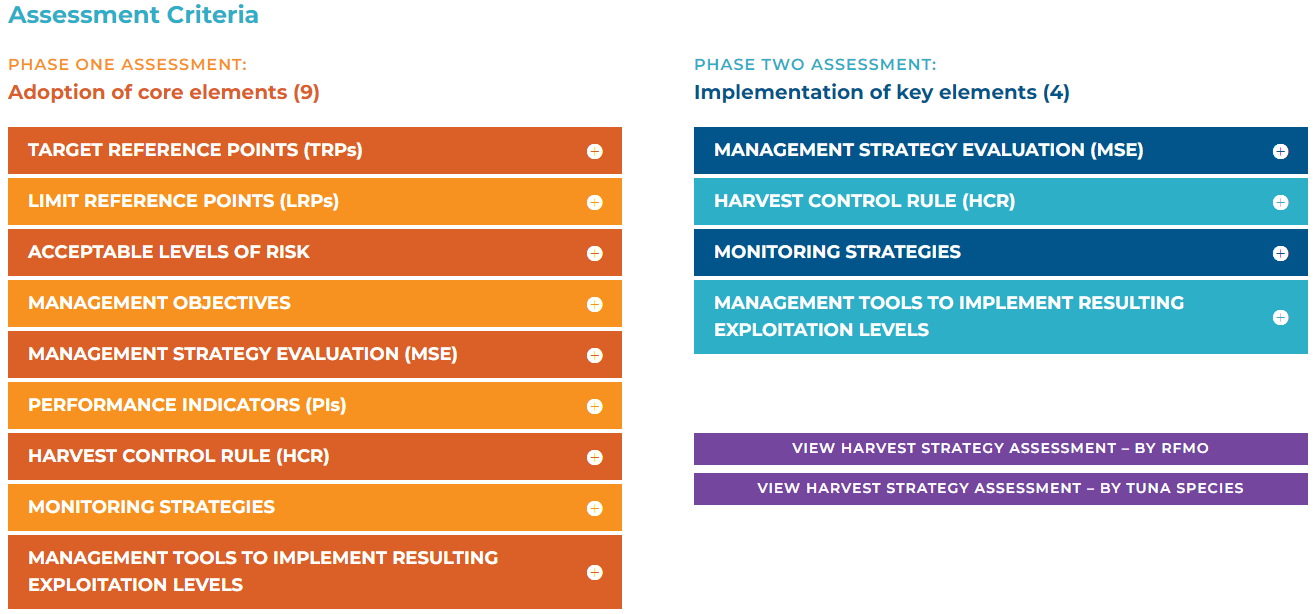5 de abril de 2024

Tuna is an important global business, as well as a critical source of both protein and livelihoods for many around the globe. Therefore, it is critical that they are effectively and sustainably managed. Five Regional Fisheries Management Organizations (RFMOs) are charged with that responsibility, overseeing tuna fisheries management in their respective regions that collectively cover over 90% of the ocean.
RFMOs have members from developed and developing nations and manage a wide range of gear types that harvest tuna in areas both under national jurisdiction and on the high seas. Therefore, it’s no surprise that agreeing on how to manage these critical stocks can be challenging. It is crucial that the rules for managing tuna stocks are well-defined and agreed in advance, providing a prescriptive, proactive roadmap that directs management action. That’s where pre-agreed frameworks called harvest strategies, sometimes referred to as management procedures, come in.
But what exactly is meant by “harvest strategies?” And how can fisheries managers, members of the supply chain and seafood consumers tell if RFMOs are making progress in adopting and implementing these key measures?
To answer these questions, the NGO Tuna Forum, a collaboration of more than 30 NGOs engaged in global tuna sustainability efforts, has developed a methodology to evaluate which RFMOs have adopted and implemented harvest strategies for the stocks they manage, as well as to track their progress over time. The result is our RFMO Harvest Strategies Assessment Tool.
The intent of this tool is not to rate or rank RFMO efforts to manage tuna stocks. Rather it is intended to show where progress is being made and highlight where more work is needed. It also serves as a resource for all engaged stakeholders to better understand where we are in the shared journey toward adopting and implementing harvest strategies to achieve effective tuna stock management.
The tool spotlights the nine elements that participants in the NGO Tuna Forum have defined as the components of comprehensive, precautionary harvest strategies that must be collectively adopted and implemented by the RFMOs. They are:
Definitions and scoring criteria for each element are included in the assessment methodology.
The tool allows users to view the current status of adoption and implementation of each element of harvest strategies for each tuna stock by RFMO, as well as allowing a view of current status of each tuna stock across all RFMOs. The tool is updated twice a year to reflect the latest RFMO actions. Again, the goal is to provide a clear understanding of current status, recent progress, and areas where further progress is most needed.
We believe having a single set of benchmarks of clearly defined elements of harvest strategies, which anyone can use to track RFMO progress, is vital for advancing the adoption and implementation of harvest strategies, which are the most effective path to long-term, sustainable tuna management. Stay tuned to the tool to see what progress the tRFMOs make this year toward the NGO Tuna Forum’s 2024 harvest strategy-related policy asks!

Robin Teets is Project Lead for the NGO Tuna Forum, an independently coordinated and funded body of more than 30 NGOs that work comprehensively on tuna sustainability issues globally.